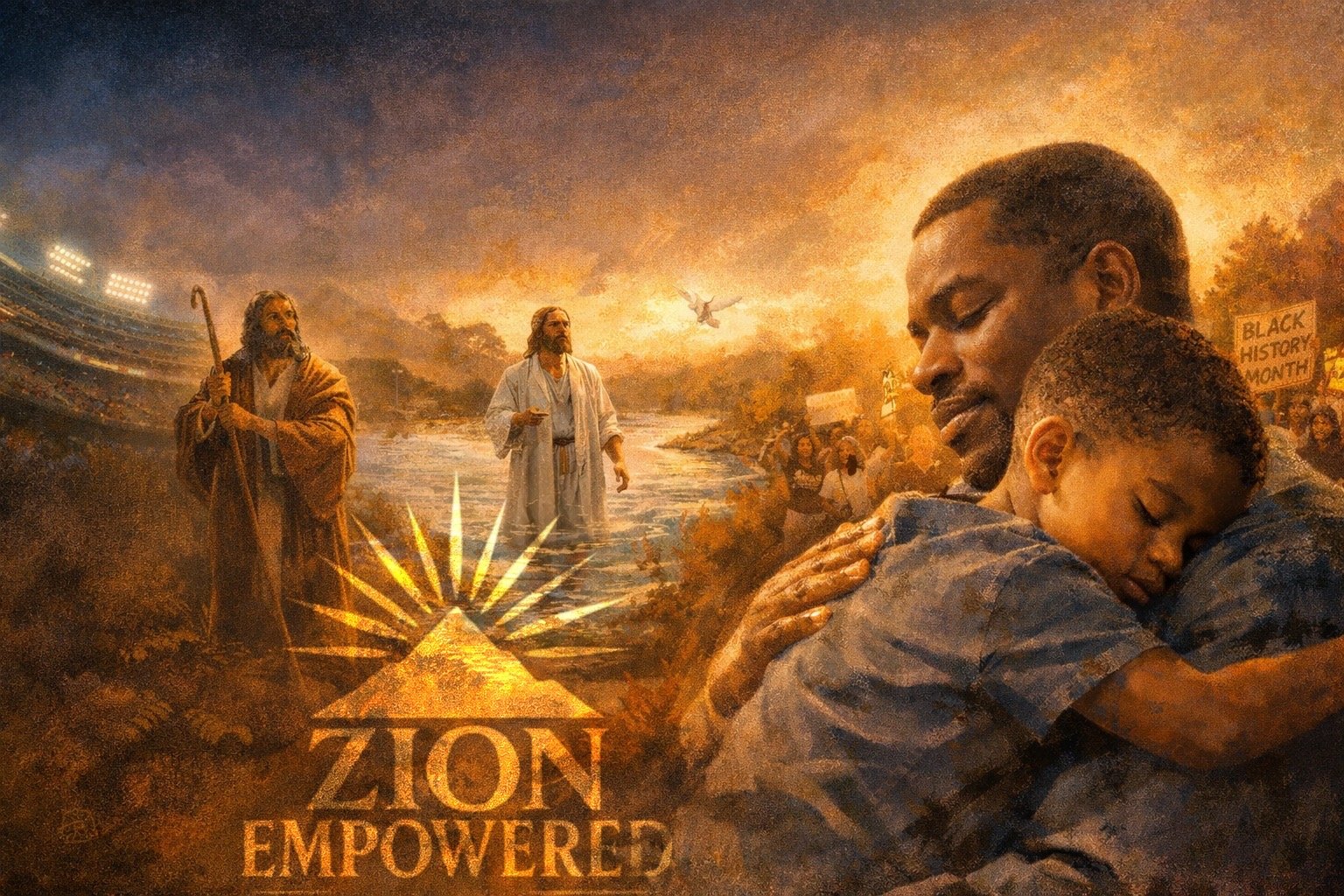
Beloved Before Burden
Preamble
Before Moses organizes leadership,
before Israel receives law,
before Jesus says a word in public or lays a hand on a wounded body,
God speaks belonging.
Not instruction.
Not correction.
Not expectation.
A voice.
A name.
A pleasure taken in him.
That matters on a weekend when the nation gathers to watch strength,
to measure worth by performance,
to crown heroes and discard them by Monday morning.
Because every spiritual collapse begins the same way:
when burden outruns identity,
when people are asked to carry weight
before they are told they matter.
And every people who have had to survive in this country know this lesson well.
We have been praised for our labor,
borrowed for our gifts,
celebrated for our endurance,
and rarely spared the cost of carrying it all.
So Scripture interrupts us here on purpose.
Before the work, God names the worker.
Before the demand, God claims the beloved.
Before the world decides what someone is useful for,
God decides who they are.
Faithful communities do not endure by staying busy.
They endure by remembering themselves,
by refusing to confuse survival with worth,
by insisting that identity is not earned under pressure.
Belovedness comes first.
Everything else must answer to that.
And when a people remember this,
they do not just make it through the season.
They learn how to stay whole while they do.
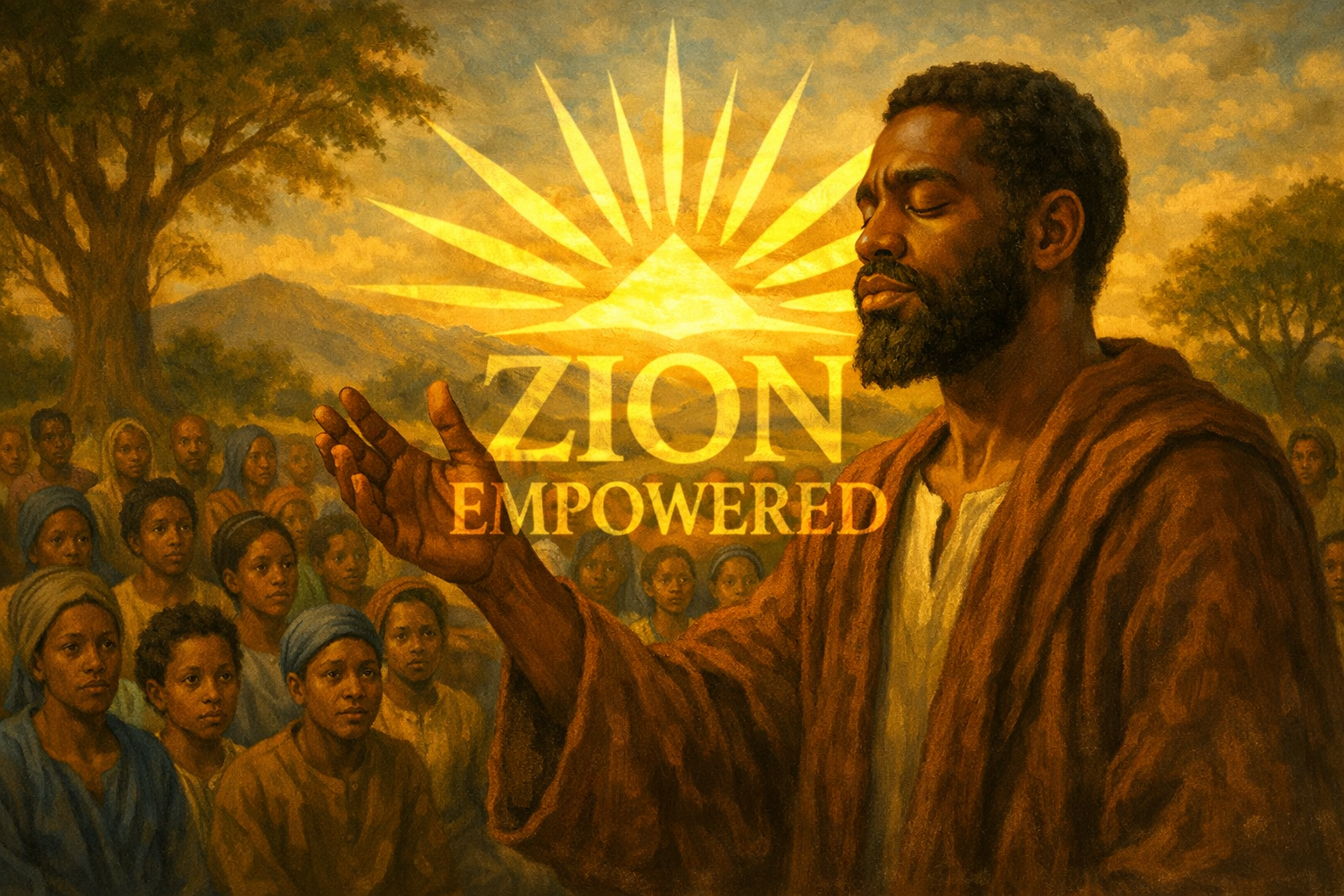
Formed on the Way
Preamble
Before Israel ever faces the sea,
before Paul ever speaks of maturity,
God introduces the same unsettling truth in two eras:
Freedom often comes faster than wisdom.
Unity is declared before agreement.
Formation happens on the road—
not after the conflict is settled.
Exodus shows a people who are free but not yet formed.
Ephesians shows a church that is one but not yet mature.
Both refuse the illusion that liberation produces instant stability.
Both assume tension will follow deliverance.
And both insist that in unstable times,
presence must come before precision,
and shared direction must matter more than speed.
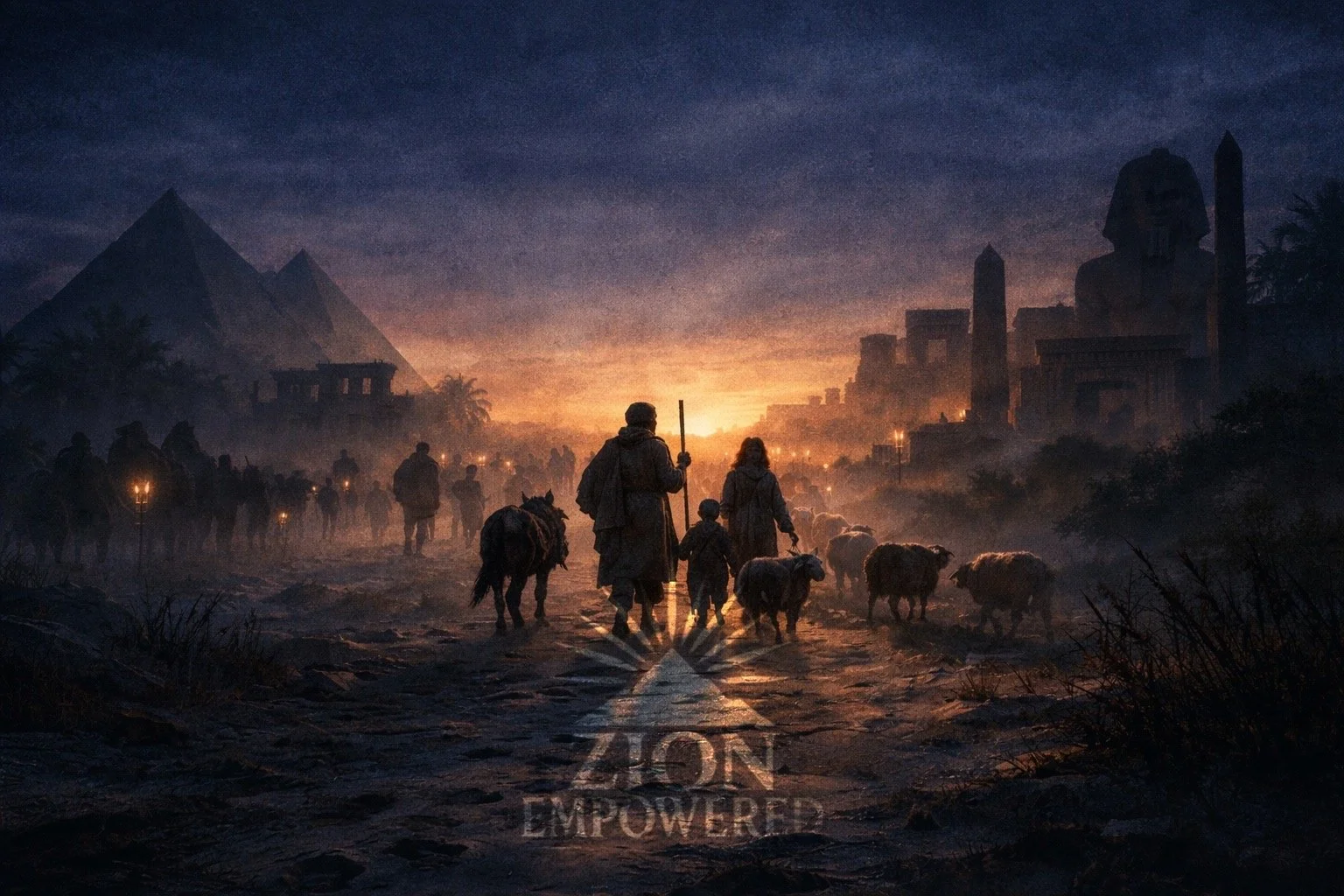
Not a Hoof Left Behind
Preamble
Before Israel knows how it will worship,
before Paul knows how suffering will shape him,
God presses the same question in two eras:
Will you move forward without full clarity
or will you keep bargaining with what Egypt gets to keep?
Philippians names the inward struggle.
Exodus exposes the outward one.
Both refuse the lie that growth means “starting over.”
Both insist that progress, once gained, must be held.
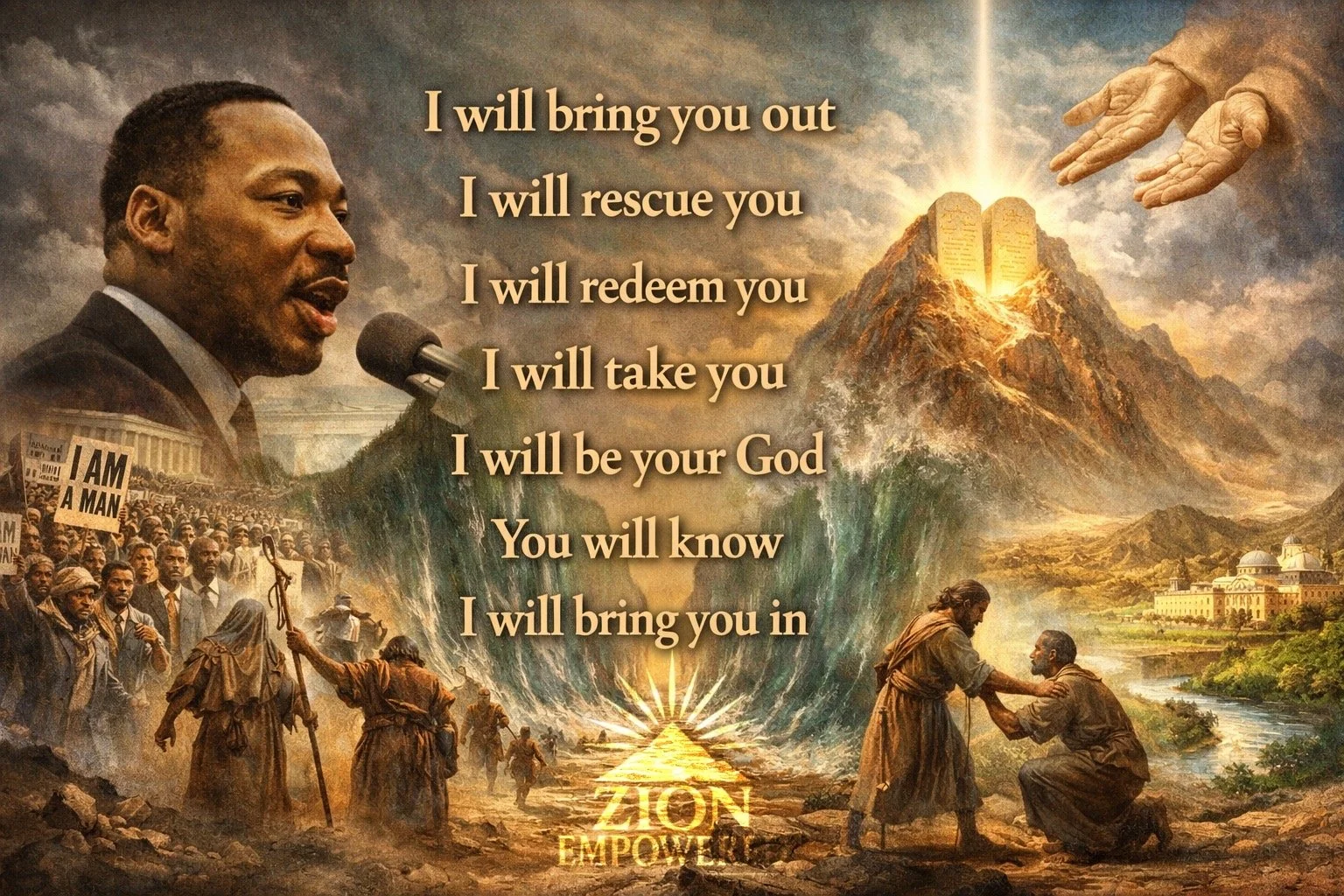
Seven Promises Before the Shaking
Preamble
Before anyone speaks right to God,
Scripture asks a quieter question:
Who gets to stand?
Some stand rehearsed.
Some stand bruised.
Some stand certain they’re right.
Some stand knowing they’re not.
In Exodus, God speaks seven promises to people too crushed to listen.
In the Gospel, one man prays loud, and goes unheard.
Another barely speaks, and goes home free.
This isn’t about prayer technique.
It’s about position.
It’s about truth.
It’s about who God listens to when power is in the room.
So today we listen for the God
who secures covenant before challenging empire,
who hears the low voice,
the honest voice,
the voice that doesn’t pretend.
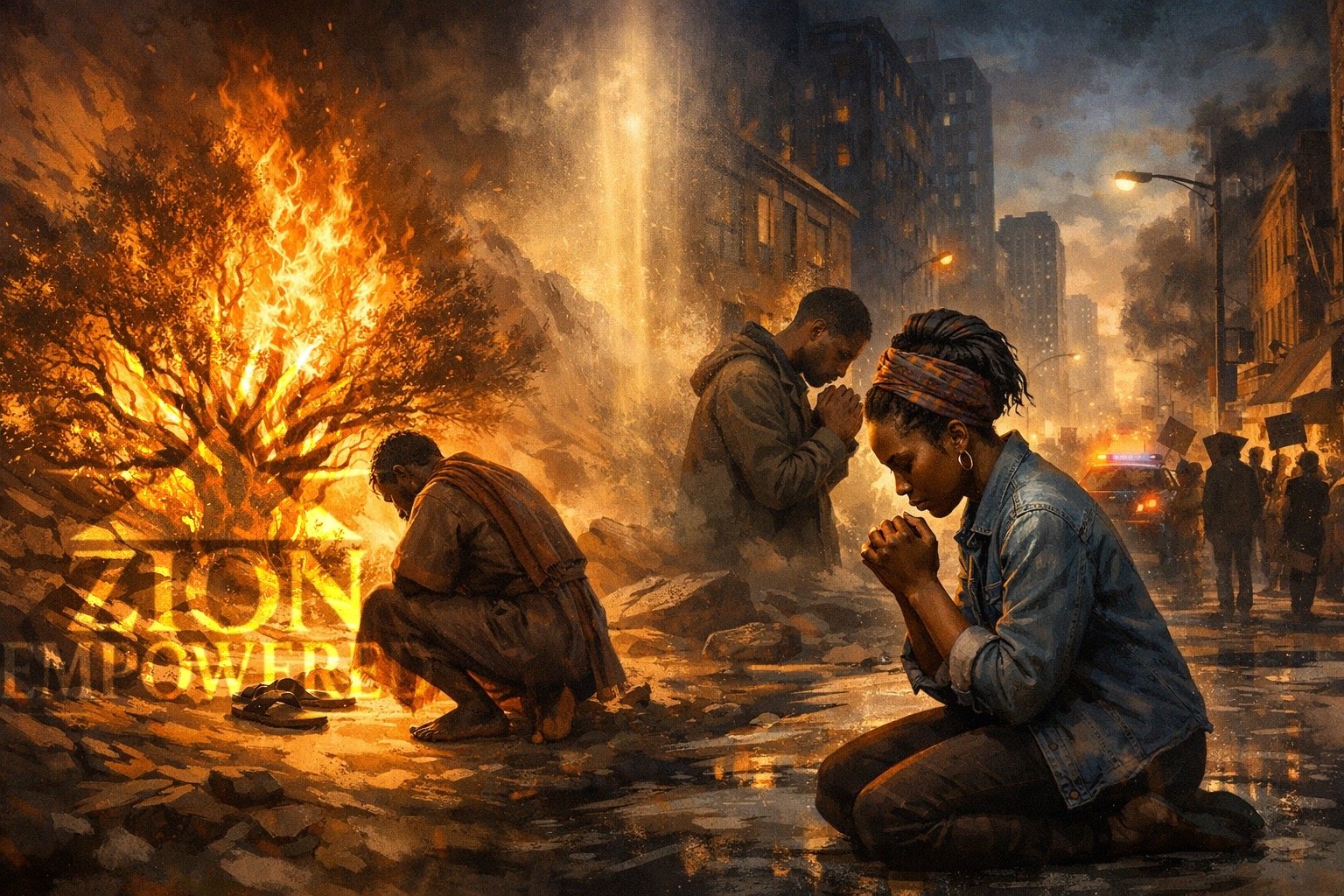
When the Cry Becomes a Name
Preamble
Before Israel ever learns how to pray, Israel cries because silence has become unbearable.
Before Jesus teaches the words of prayer, He exposes the danger of praying for the wrong reasons.
Matthew 6 does not offer technique.
Exodus 2–3 does not offer theory.
Both confront us with the same demanding truth:
Prayer begins when injustice is named aloud, and it matures when God’s Name interrupts our comfort.
This is not a lesson about sounding spiritual in visible places.
It is a lesson about what happens when suffering is pushed to the margins, when violence becomes familiar, when fear starts masquerading as normalcy.
Scripture refuses to bless that kind of quiet.
The Bible testifies that God listens first to the groan before the grammar,
to the cry before the creed.
God sees what power pretends not to notice.
God hears what communities are told to endure patiently.
And when the weight of injustice becomes too heavy for the soul to carry alone, God does not remain distant—God comes down.
This kind of prayer is not convenient.
It disturbs false peace.
It challenges shallow calls for order that ignore the wound.
It insists that reconciliation without truth is not reconciliation at all.
So when Jesus teaches us to pray, He is not inviting retreat from the world.
He is forming a people strong enough to stand within it,
to speak without hatred,
to forgive without surrendering justice,
to resist despair without denying pain,
and to believe that the Kingdom of God is not postponed by terror, violence, or fear.
Prayer, in this season, is not passive.
It is moral courage practiced on holy ground.
It is the long work of aligning heaven’s will with earth’s broken streets.
And as a certain preacher once reminded a weary nation,
history bends only when people are willing to pray, speak, and act
as though God is still listening,
and still coming down.
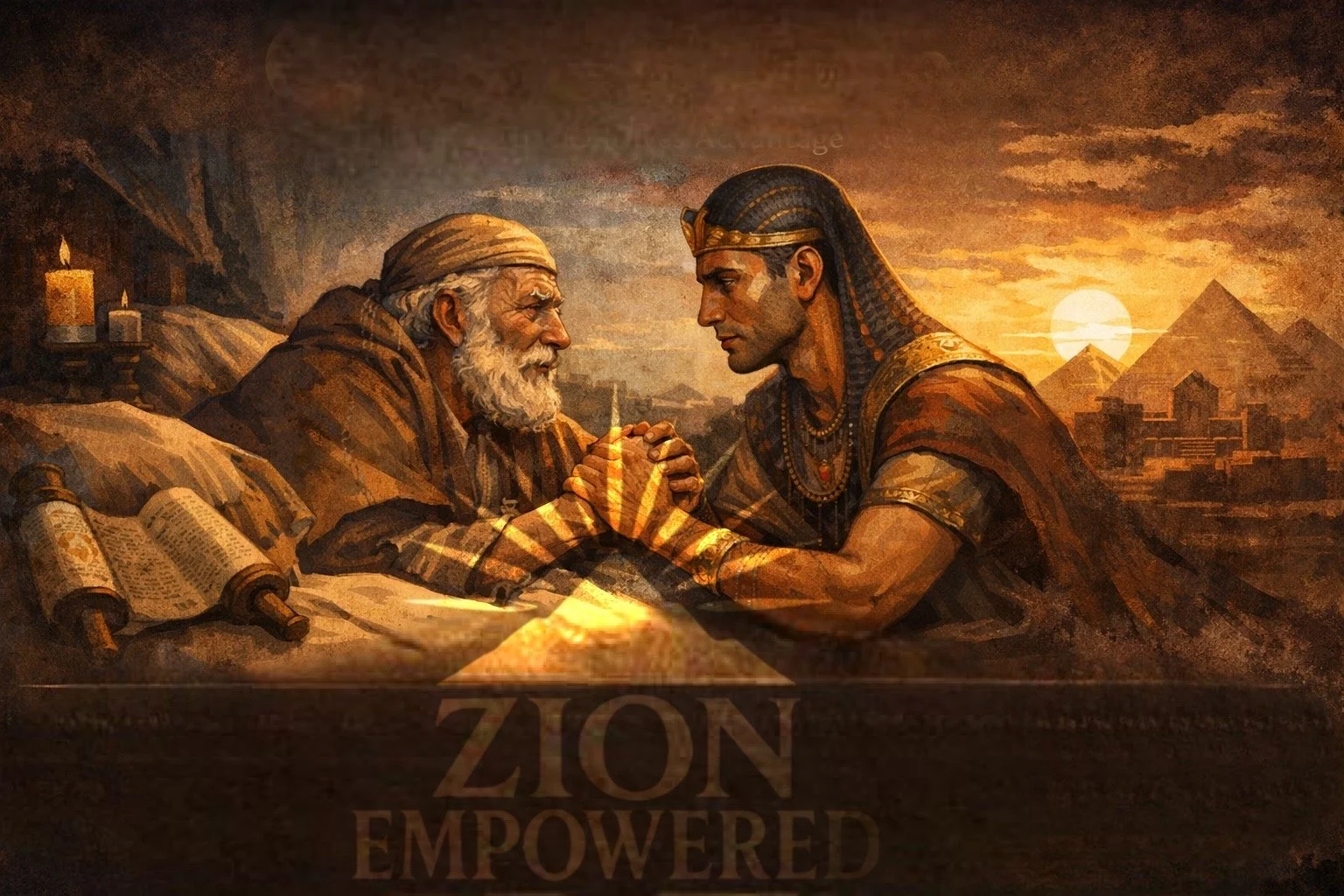
Chesed v’Emet: Covenant Ethics When the Ending Is Withheld
Preamble:
When God Teaches Ethics Inside Exile
We live in a world that treats power like a math problem you have to solve fast.
If you do not grab leverage, someone else will.
Speed passes for wisdom.
Force gets called necessity.
And fear, once it learns the right vocabulary, starts introducing itself as policy.
So everything moves quickly.
Words. Reactions. Consequences.
As if motion alone could count as thought.
But speed can move a system.
It cannot mature a people.
It only reveals what we were hoping not to examine.
Anxiety is very efficient.
It multiplies motion and divides memory.
The louder we get, the less we remember why we started moving.
And power, left unchecked, begins to mistake panic for principle.
That is not new. History has tried this equation before. It never balances.
Scripture interrupts the math.
Micah puts God on trial before the mountains, not to accuse Israel of failure, but of forgetting.
God’s first question is not “What did you do wrong?”
It is “What did I ever do to make you forget Me?”
Genesis takes us to a bedside in Egypt.
Jacob has no leverage left. No control over outcomes.
So he asks for one thing. Covenant loyalty when power is gone.
One scene is public. The other is quiet.
Both ask the same question.
Who governs you when you could act, but restraint would cost you?
Here is Scripture’s answer.
When God withholds the when, He clarifies the how.
Not with spectacle.
Not with domination.
But with justice that does not perform, mercy that does not advertise, and humility strong enough to say, “Just because I can does not mean I should.”
Exile is not just a place.
It is the moment when the future feels closed and faith is measured by restraint.
The question is not whether we can win.
History is full of winners who forgot themselves.
The question is whether, standing this close to power, we still remember who we are.
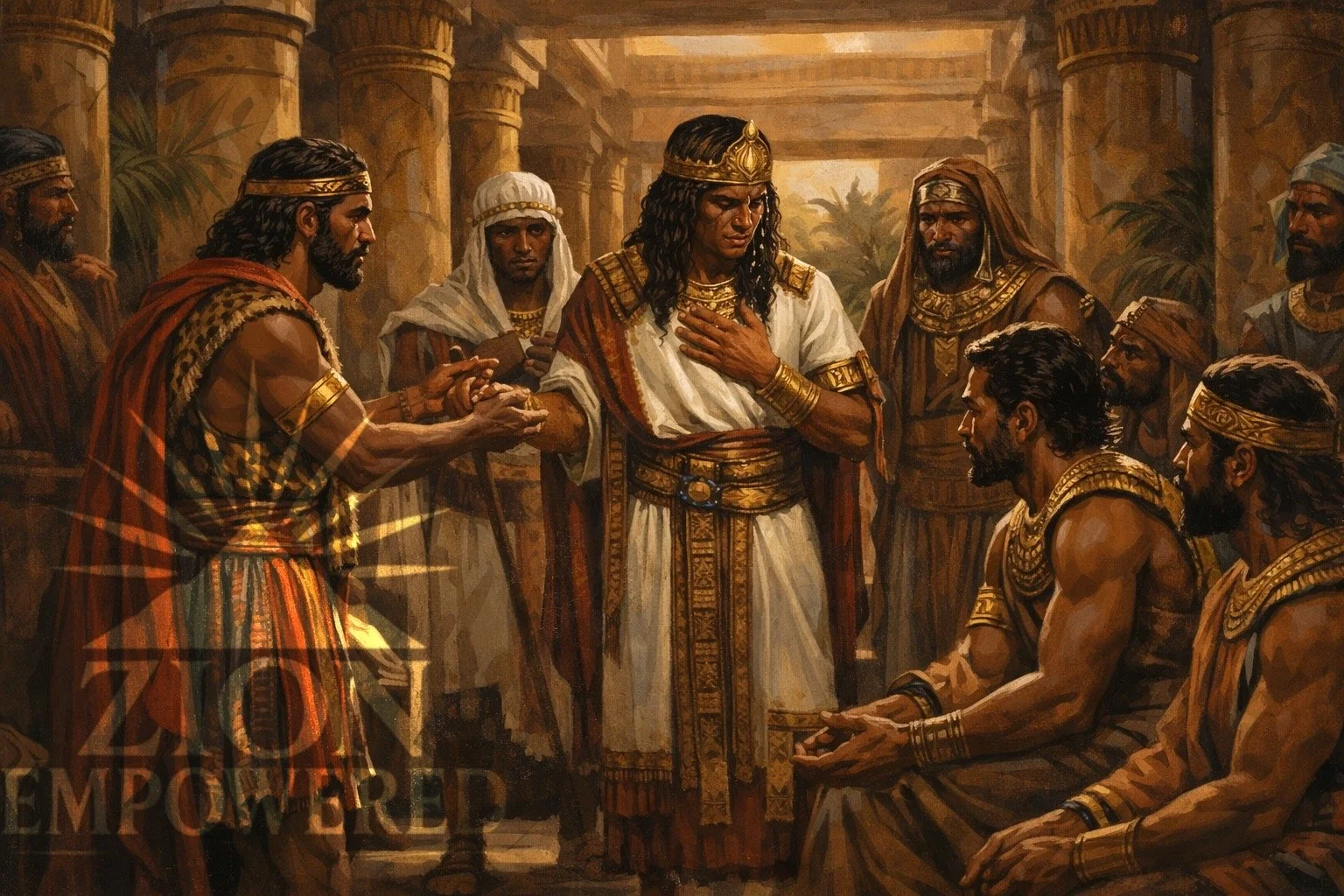
Abba in the Courtroom
Preamble:
Family is the first courtroom most of us ever stood in.
Some folks grew up with love like oxygen—just there.
Others grew up having to earn peace, perform worth, negotiate belonging.
So when Paul says, “You have not received a spirit that makes you fearful slaves,” he’s not doing religious poetry—he’s doing emancipation.
And when Judah says, “Let me remain as a slave instead of the lad,” he’s not doing drama—he’s rewriting the family story.
This Sunday is the last service of the year.
So we are not here to review resolutions.
We’re here to ask: Did the Spirit move us from slavery into sonship—or did we just decorate our chains?
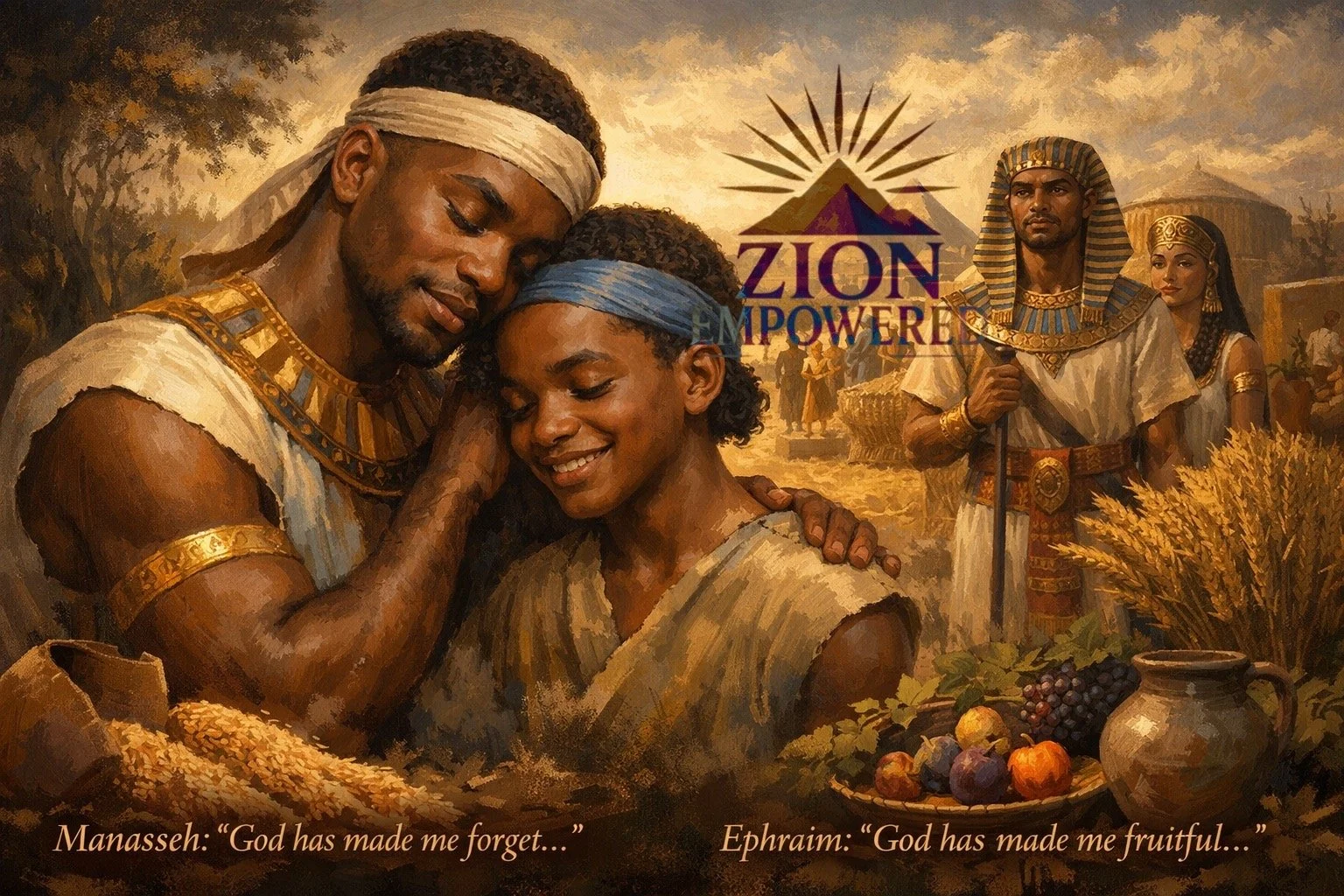
When God Governs Through Others
Preamble: When God Governs Through Others
A World Obsessed with Power and Speed
We live in an age restless for control. Power is measured by speed, by volume, by who can seize the moment before it slips away. Nations posture, institutions strain, headlines multiply, and the public soul grows weary from the noise.
Human Effort Exhausted
Everyone is rushing—yet very little is being prepared. Much is done in haste, little is done with foresight. The machinery moves quickly, but wisdom lags behind.
Scripture Introduces a Different Way
Scripture does not deny power; it redefines it. It speaks of authority formed in patience, of leadership shaped by restraint, of outcomes prepared long before they are announced.
God Works While the World Waits
Here is the quiet truth Advent teaches us to watch for:
God advances His purposes while the world is still waiting.
Not in spectacle. Not in panic. Not in force.
But in steady preparation, unseen alignment, and faithful restraint.
Scripture Reveals This Pattern in History
In Genesis, Joseph rises within the machinery of empire—not by willfulness, but by disciplined patience. In Zechariah, Zerubbabel rebuilds amid delay—not by spectacle, but by endurance. One stands before a throne; the other among ruins.
God’s Work Is Preparation, Not Panic
Grain is stored before hunger arrives. Foundations are laid before walls appear. Light is readied while darkness still lingers. What seems slow is, in truth, deliberate.
A World Quietly Being Prepared for Light
And so, while the world remains loud, anxious, and impatient, God governs through faithful people who watch, wait, and prepare—trusting that redemption often arrives quietly… just in time.
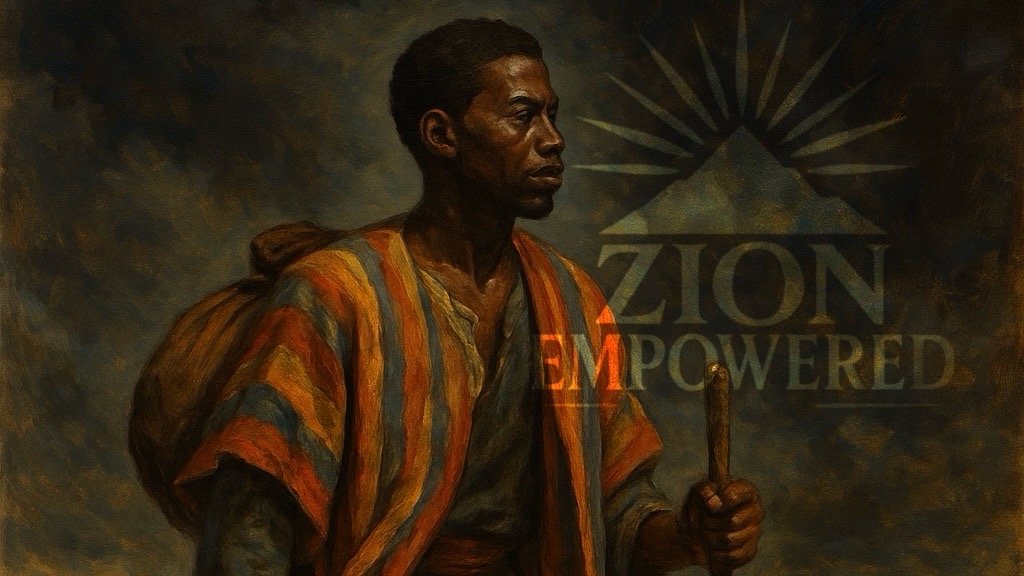
The Pit Can’t Cancel the Promise: Walking Without Worry
PREAMBLE : SENT INTO UNCERTAINTY
We are living in an age trained to worry.
Economic pressure, political calculation, communal fear about what tomorrow may demand—these have become the air we breathe. And into that atmosphere Jesus speaks with unsettling restraint: “Do not worry about your life.”
His words confront a world that confuses control with wisdom, preparation with righteousness, and fear with responsibility.
Genesis places us inside a household shaped by that same anxiety. Jacob’s family is fractured by favoritism, governed by quiet rivalry, and ruled by fear of the future. When Joseph is sent to check on his brothers, he does not walk into neutral territory. He walks into a field already charged with resentment and the unspoken logic of violence.
Yet Joseph does not calculate risk.
He does not negotiate safety.
He answers simply: “Here I am.”
What appears to be an ordinary errand—an act of care, not command—is quietly named by Torah as covenantal. God’s promise advances not through spectacle, but through obedience that looks insignificant.
Joseph arrives in Shechem and finds no one. The text pauses. He is wandering—exposed, uncertain, without coordinates. This is Advent ground: movement without clarity, faith without guarantees.
Then comes the interruption. A man finds him and asks a question that cuts to the core: “What are you looking for?” Joseph answers without hesitation: “My brothers.”
Not safety.
Not advancement.
Not vindication.
Relationship.
Here the story breaks open. Joseph seeks kinship; his brothers have already abandoned brotherhood. Before a pit is ever dug, communion is withdrawn. Violence begins long before action—it begins when the other is no longer regarded as kin.
“They have gone to Dotan”—legalities.
Not rage, but rationale. Not impulse, but permission. Fear builds a case. Anxiety drafts paperwork to bless what conscience has already rejected.
Joseph follows anyway.
Warned—he continues.
Redirected—he proceeds.
Exposed—he advances.
He walks straight into a future prepared by God but concealed behind human hostility. He lives what Jesus will later say plainly: do not worry about tomorrow. Joseph does not manage outcomes; he trusts the One who sent him.
The brothers see him from afar. Distance again. By the time they speak, Joseph is no longer a brother but a symbol: “Here comes that dreamer.” Fear strips him of personhood. Once a person becomes an idea, violence becomes possible.
And hovering over the scene is the quiet verdict of God:
“We will see which succeeds—your plans or his dreams.”
This is Advent’s grammar. God advances promise through those willing to go without guarantees. The pit does not appear because Joseph is reckless; it appears because fear cannot tolerate trust.
And Christmas will follow the same pattern:
a Son sent,
a journey misunderstood,
light entering territory already decided against Him.
The promise moves forward anyway.
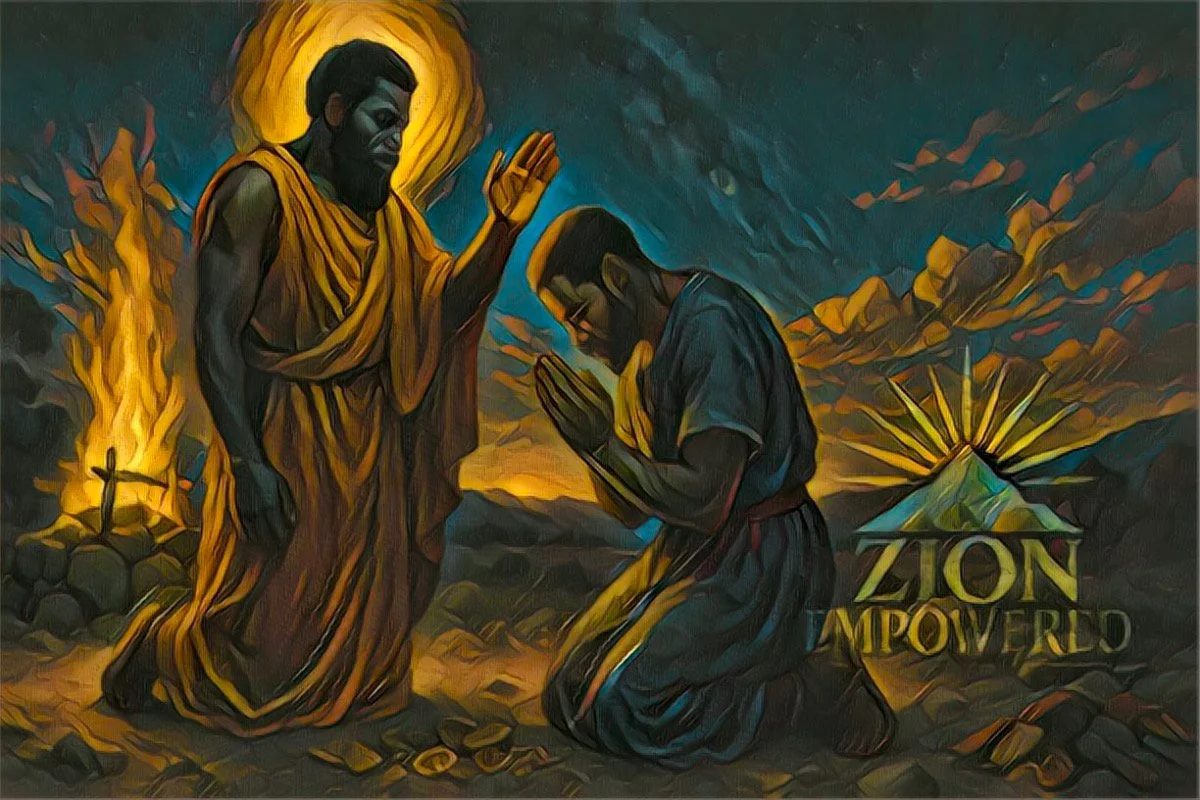
Strength for the Powerless: Israel Renewed at Bethel
Preamble: Bethel at the Edge of Exhaustion
In an age rattled by conflict, political tremors, and communal fatigue, the ancient question resurfaces: Has God forgotten our name? Headlines echo Jacob’s unrest—families uprooted, leaders faltering, nations limping beneath burdens no one volunteered to carry.
Isaiah addresses this secular weariness with sacred clarity:
“Do you not know? Have you not heard?”
The Everlasting God neither sleeps through injustice nor overlooks the powerless. Divine attention is not rationed; it is revealed.
Jacob’s return to Bethel mirrors our present moment. He travels wounded—carrying idols taken in trauma, grief buried under leadership, and a household disoriented by violence. He is commanded not to solve the world but to ascend: “Arise, go up to Bethel.”
At Bethel, revelation interrupts exhaustion. God restores Jacob’s name—Israel—and thereby restores his strength. Identity precedes vitality. The powerless rise not by might but by encounter. Advent begins here: in the God who appears precisely when night is longest and hope most threadbare.
So Jacob buries the idols, changes garments, and rebuilds an altar. These acts are not ceremonial—they are psychological detox, communal reorientation, political refusal. What was taken in crisis is surrendered in covenant.
And the promise returns with precision: those who wait upon the Lord exchange depletion for endurance. They do not merely survive; they soar. Divine strength is not added; it is transferred.
Thus Bethel becomes the interpretive key for our own Advent world—a society staggering under fear, yet summoned to ascend. Where Jacob once limped toward revelation, we now walk toward the Child whose coming redefines power, rights, and rest.
The weary are renamed; the powerless are lifted; the night becomes navigable.
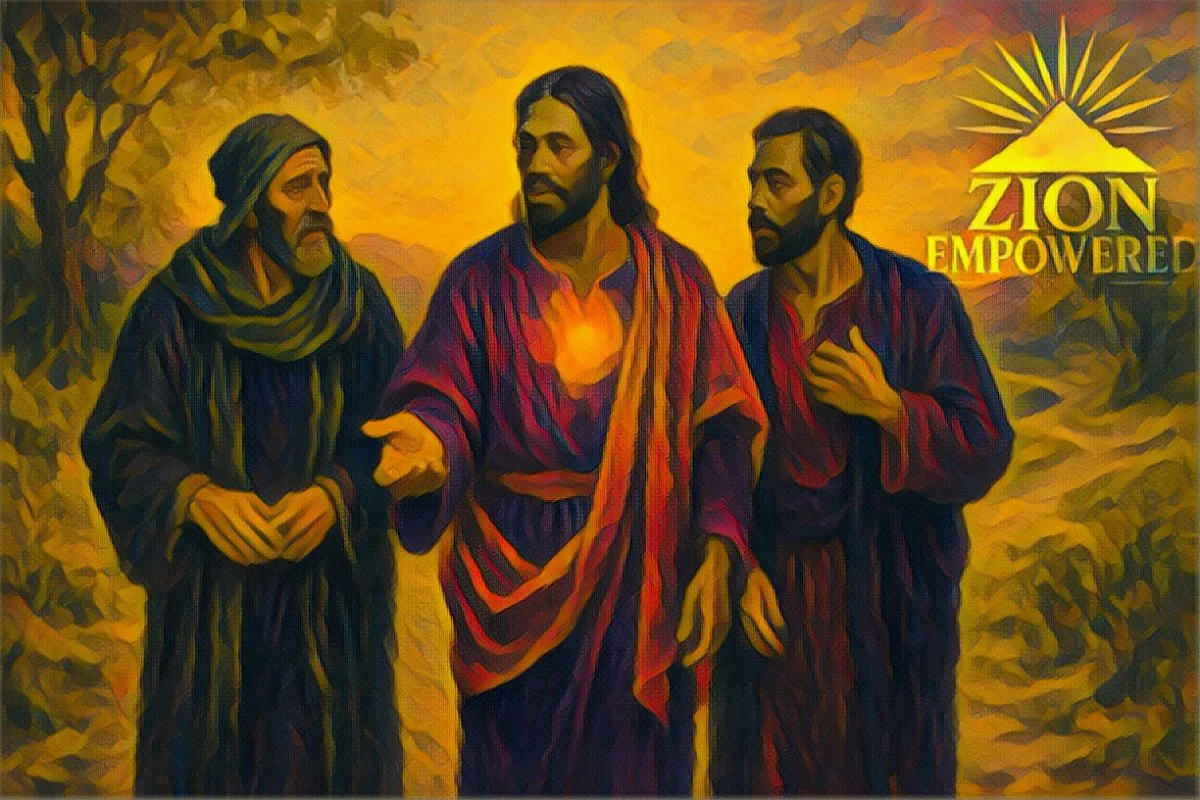
Return: When Revelation Turns the Heart Back Home.
Preamble: Return: When Revelation Turns the Heart Back Home.
There are moments when God’s Word doesn’t simply inform us - it interrupts us with mercy.
Jacob had carried twenty years of quiet ache under Laban’s roof: wages twisted, love leveraged, calling delayed. Over time, even mistreatment can settle into a kind of numbness. You stop naming it exile. You start calling it “life.” And then God whispers a sentence that feels like sunrise after a long night:
“Return to the land of your fathers… I will be with you.” (Genesis 31:3)
It is the Torah’s Emmaus moment. Like the disciples whose hearts burned on the road without knowing why, Jacob’s heart warms again in that open field. He realizes that God has been keeping count of every silent grief, every stolen hour, every tear he didn’t know he was holding.
And here - in the stillness between flocks and dust - revelation becomes thanksgiving. Jacob sees that the God who met him on a stone at Bethel never left him. What began in a dream is confirmed in daylight. What he thought was coincidence becomes covenant.
He turns - not because anything “got better,” but because God opened his understanding. And when understanding opens, gratitude follows right behind it.
This is the Eastern truth our Western eyes often miss: Returning is not going backward - it is going deeper. You do not return to a place; you return to yourself. You return to promise, to covenant, to the God who was faithful even when you were too tired to notice.
It is the holy pattern of God- that every return is a readiness, every pause a preparation, every silence a womb.
Our ancestors knew it before Bethlehem ever glowed: hope doesn’t run; it roots itself.
And when the Light draws near, return becomes the doorway through which deliverance walks.
Return is release.
Return is revelation.
Return is resurrection with thanksgiving in its mouth.
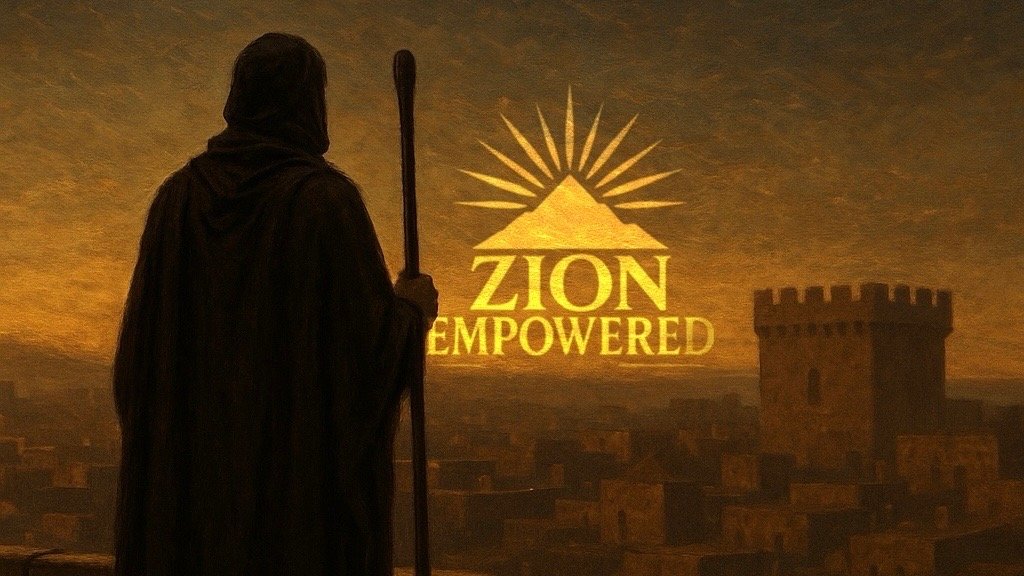
The Watchman and the Wells: Truth under Pressure
Preamble — When Silence Becomes Sin
Ezekiel stands on the wall not as a soldier but as a listener. His weapon is awareness. Isaac, generations earlier, stands in Philistine soil where fear tempts him to lie. Both men face the same trial: Will you speak truth when comfort depends on silence? God’s word to Ezekiel cuts across centuries: responsibility does not end at obedience—it begins with warning. And still today, walls hum with rumors and files leak from vaults; the powerful bury what cries out to be told. Each generation meets its own Sodom of secrecy. The prophet’s voice reminds us that unspoken truth festers like a stopped-up well: prosperity dries, trust evaporates, and a people thirst for integrity. Spiritual droughts are rarely the absence of blessing—they are the consequence of withheld confession. The cure is the same as ever: open the gate, draw the water, let truth breathe.
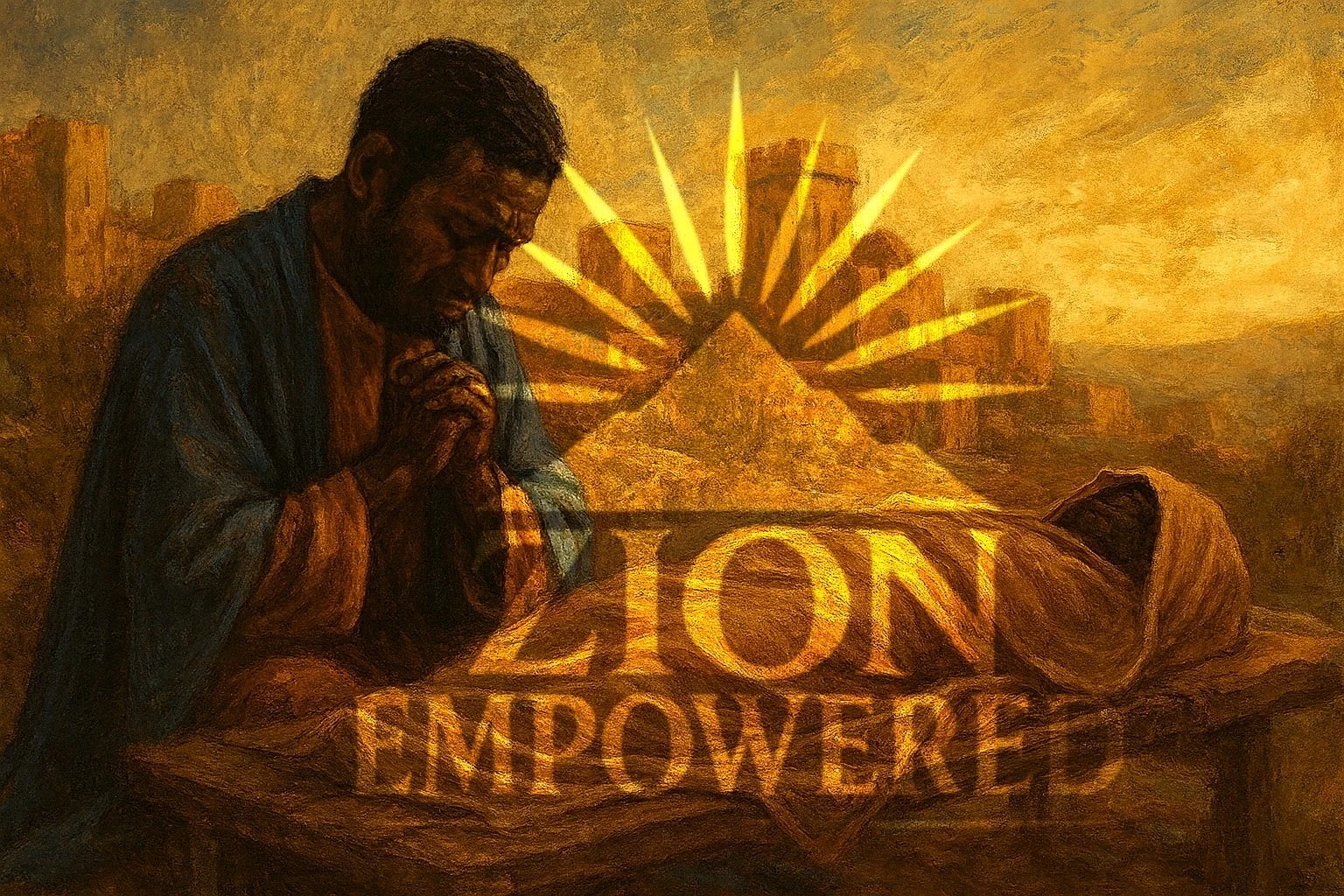
When Grief Speaks — And When It Must Stay Silent
Preamble — “When God Breaks the Heart That Teaches the Nation”
Some pains don’t shout — they sit in the chest like a stone. Ezekiel learns this the hardest way: the love of his life is taken, and God tells him, “Don’t mourn where people can see you.”
This isn’t divine cruelty. This is prophetic theater in a culture where prophets preach with their own bodies. His silence becomes the sermon. His restraint becomes the warning. His heartbreak becomes a mirror for a nation standing on the edge of collapse.
Meanwhile, Abraham stands in a different kind of sorrow. Sarah — the first matriarch, the breath behind the promise — dies. And instead of silence, Abraham goes to the elders at the city gate. He mourns openly. He negotiates land. He secures a burial place.
In burying Sarah, he plants his first root in the Promised Land. Grief becomes ownership. Loss becomes legacy. A grave becomes a doorway.
Two men. Two beloved women. Two griefs — one silent, one structured — yet both open the covenant further. One grief teaches a nation how to listen; the other grief teaches a family how to continue.
This is the mystery Western eyes almost always miss: In the East, grief is not an interruption. It is revelation. Sometimes God says, “Speak.” Sometimes God says, “Let silence be the sermon.”
Sometimes the loudest word God speaks is the ache we carry quietly. Sometimes the testimony is in the tear we refuse to let fall. And sometimes, like Ezekiel and Abraham, our response to grief becomes the way God moves the covenant forward again.
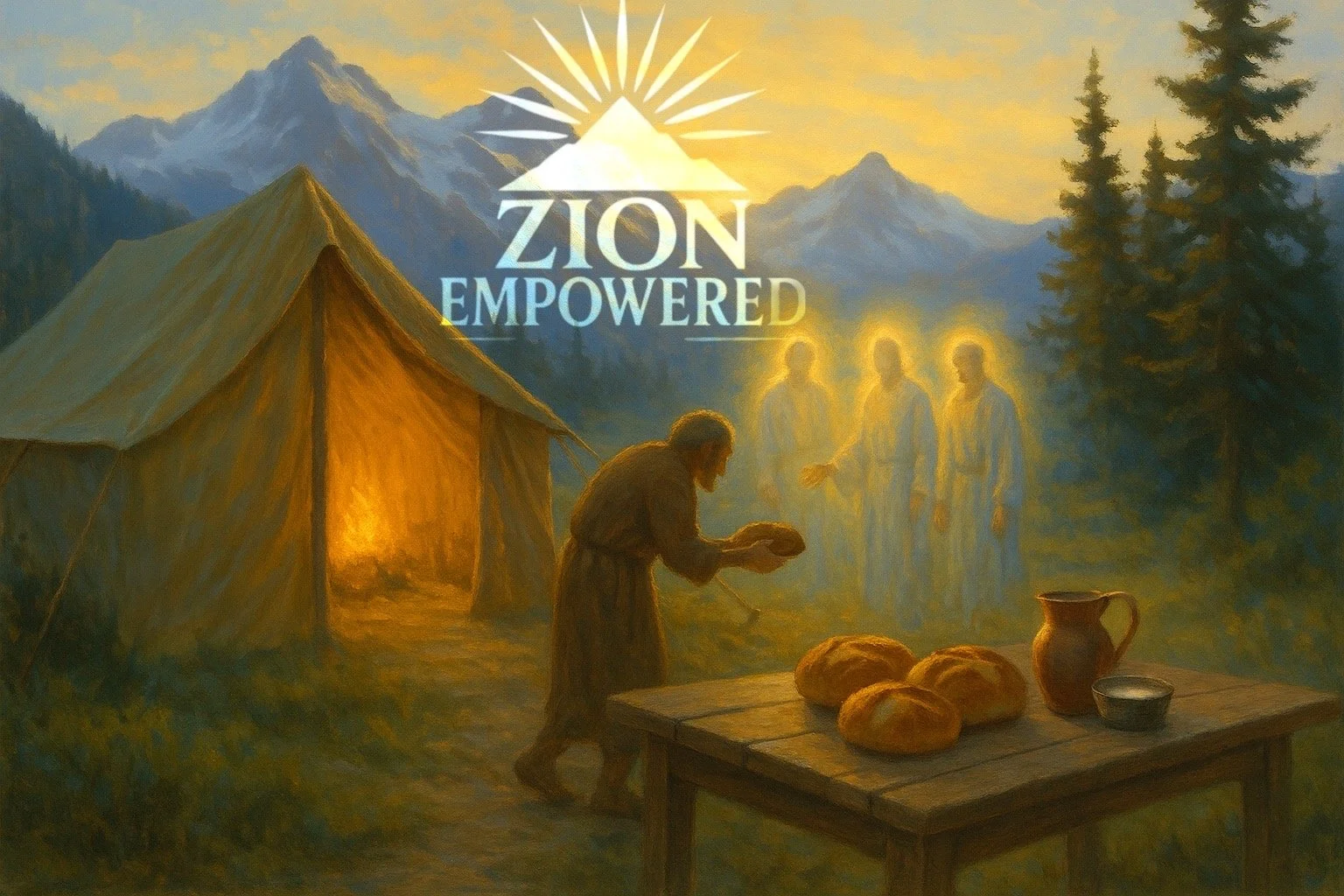
When God Appears — Be Ready to Receive
Preamble — The Breath, the Tent, and the Withheld Bread
Before the LORD appeared in the heat of the day, there was a quieter revelation — a syllable breathed into dust. Abram became Abraham, Sarai became Sarah; the sacred ה (hei) slipped into their names like wind entering lungs. That one breath did not only rename them — it re-created them. It was the sound of a covenant learning to inhale.
At the same time, far from their tent, another breath was caught in a throat. Hagar cried, and God heard. Her son’s name, יִשְׁמָעֵאל — Yishma’el — “God hears,” became a living question: would the covenant also listen to those beyond its borders? God answered not with thunder but with water. Ishmael was not born again in flesh, but in mercy.
Only then does Vayeira unfold — the God who breathes names and hears exiles appears at the threshold of an open tent. The revelation is not spectacular; it is domestic. The heat is oppressive; the tent flaps are lifted for strangers. The miracle is that Abraham still runs.
And now, in our own heat of the day, we face another tent-door test. A nation waits on withheld bread — the courts have stayed the order that would release food assistance to the hungry. Justice, like manna, is again paused in mid-air. Yet Scripture whispers: “He who delays the bread delays the blessing.”
Radical hospitality, then, is not an act of charity — it is the architecture of revelation. The tent must open in all directions because God may approach from any. Holiness is not retreat but readiness; not isolation, but invitation. The faithful heart is the tent that never locks, the mind that never ceases to listen for approaching footsteps.
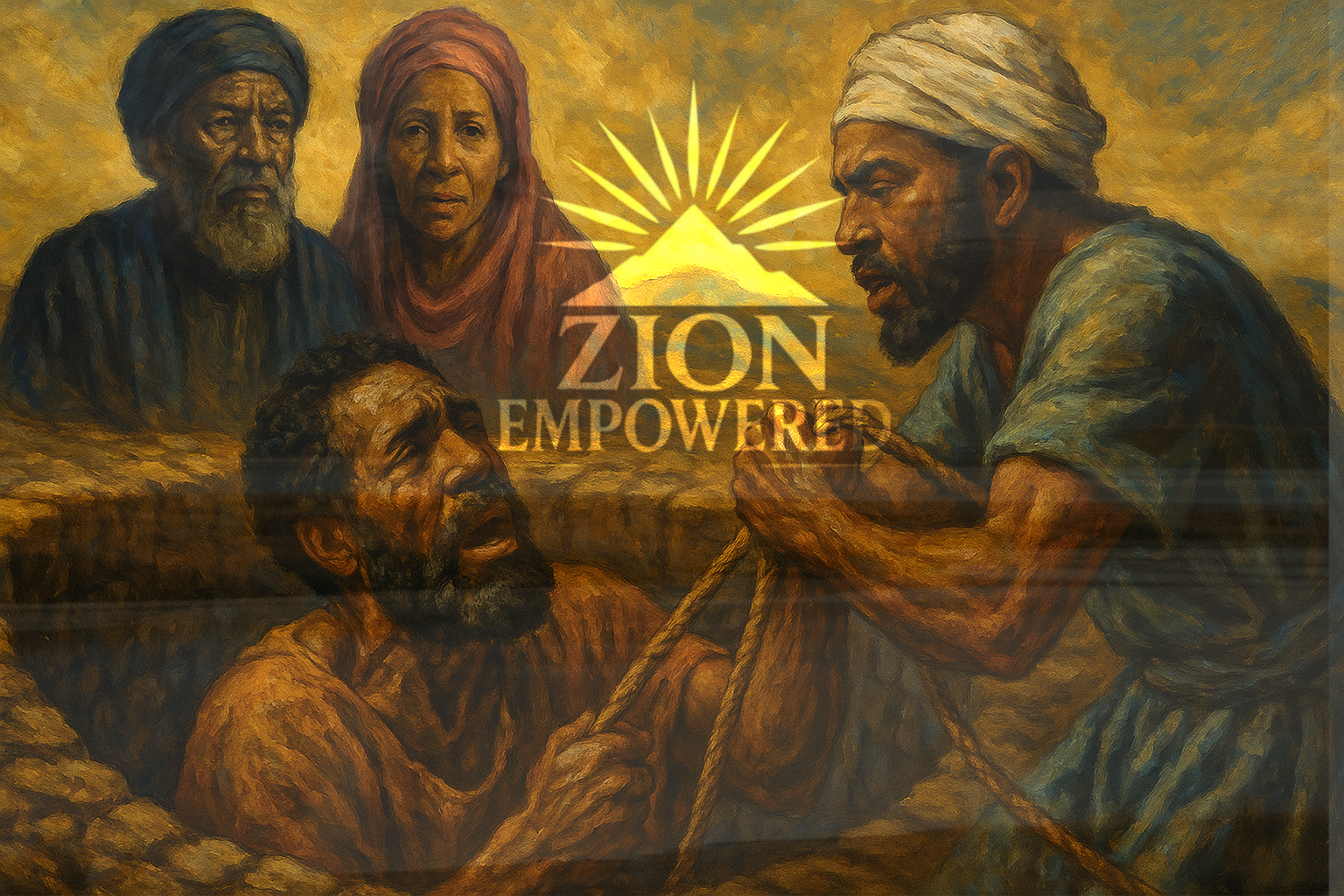
Faith in the Pit — Trust in the Journey
Preamble:
When prophets speak truth to frightened power, they are often buried before they are believed. Jeremiah’s faith lands him waist-deep in a cistern of mud, while Abram’s obedience sends him walking into a wilderness without coordinates. One sinks downward, one steps outward—but the same Spirit moves between them, hovering like breath over clay.
This story meets us in a haunted season—when the air itself remembers. The world calls it Halloween, others call it All Saints, some call it the Day of the Dead. But heaven calls it remembrance. These are the days when the veil thins and we feel our ancestors leaning in, whispering through the cracks of time: “Keep moving. Keep believing. Even in the dark, God still works.”
Jeremiah stands in the pit, knee-deep in despair, yet the word within him refuses to drown. Abram leaves the comfort of certainty, trusting a voice with no map, no guarantee—only promise. Between mud and migration, faith becomes motion, and obedience becomes resurrection.
In our generation, many know this same ache: trapped in cisterns of delay, bureaucracy, or fear—yet called to walk toward a land unseen. And here lies the quiet gospel truth: God often hides His mercy in movement. The immigrant, the refugee, the outsider—they are not threats to holiness but mirrors of it. When Abram crossed borders and Ebed-melech crossed class lines, Heaven smiled. The kingdom of God does not fear the traveler—it travels with them.
In the AME Zion rhythm, this is perseverance that sings. It’s the sound of faith that won’t rot in the mud. It’s the hum of hope that keeps walking through famine. It’s the testimony of those who have seen both grave and grace and still choose to rise.

Written on Water, Written on Hearts
Preamble:
When the waters rose in Noah’s day, the world was baptized into new possibility. The flood was not the end of creation but its trembling inhale before renewal — the moment between breath and snow. What was once written on stone tablets and covenant scrolls is, in Jeremiah’s vision, rewritten upon the human heart. The flood was not merely destruction — it was erasure, making room for divine handwriting.
And as the first flakes of a new season threaten to fall, we too feel that quiet ache of change — the snow-anxiety of transition, when warmth and uncertainty share the same air. Inside the ark, community had to learn to live with noise, odor, and one another — the long obedience of confinement that births covenant.
Both narratives speak of inscription: first upon the earth’s surface, then upon the soul’s surface. In the hush between flood and snowfall, we hear it — God rewriting creation through patience, proximity, and promise.
In the AME Zion rhythm, this is the difference between revival and re-creation — between shouting over sin and being rewritten from within, between surviving the storm and accepting the season that follows.
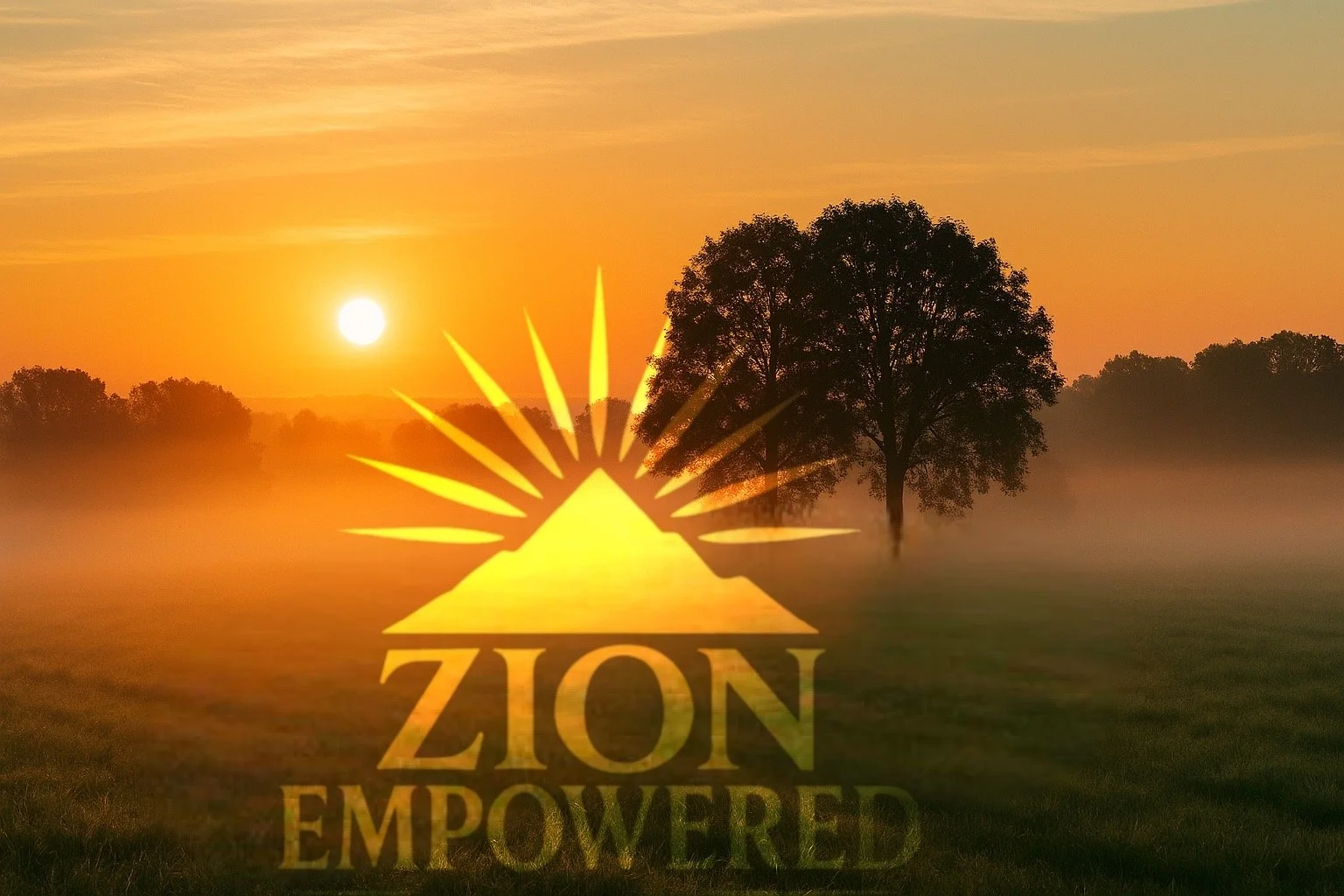
A Vow of Holiness — When the Mist Rises —The Breath Between Waters
Preamble:
The story of the Rechabites unfolds like a living parable in the echoing halls of Jerusalem. Jeremiah offers them the cup — a test of covenant fidelity — and they decline, quietly, steadfastly. Their ancestor Jehonadab had taught them another way: no vineyards, no houses, no wine; dwell in tents and trust the Lord who moves. Their holiness is not carved in stone walls but carried in obedient breath.
And somewhere far from Jerusalem, that same breath still moves over the waters. The Triune God — Father speaking, Word forming, Spirit hovering — communes through creation like a tide within itself. Before there were prophets or priests, there was a conversation between heaven and earth. A mist rose upward; the earth exhaled; and God answered with rain. That was worship before worship — the first liturgy of intimacy.
Now the coastlines of our own land tremble beneath swollen seas and relentless wind. The waters rise again, testing the strength of our foundations. Yet even here, amid flood and storm, the covenant holds: the same God who breathed mist from the soil can steady us in the deluge.
Both texts — Jeremiah’s vow and Genesis’s mist — remind us that holiness begins where we consent to limit ourselves. The world will tempt us to consume, to build without measure, to drink without discernment. But the Spirit whispers through the storm: Be still. Rise like mist. Let your vow breathe for you until the rain returns.
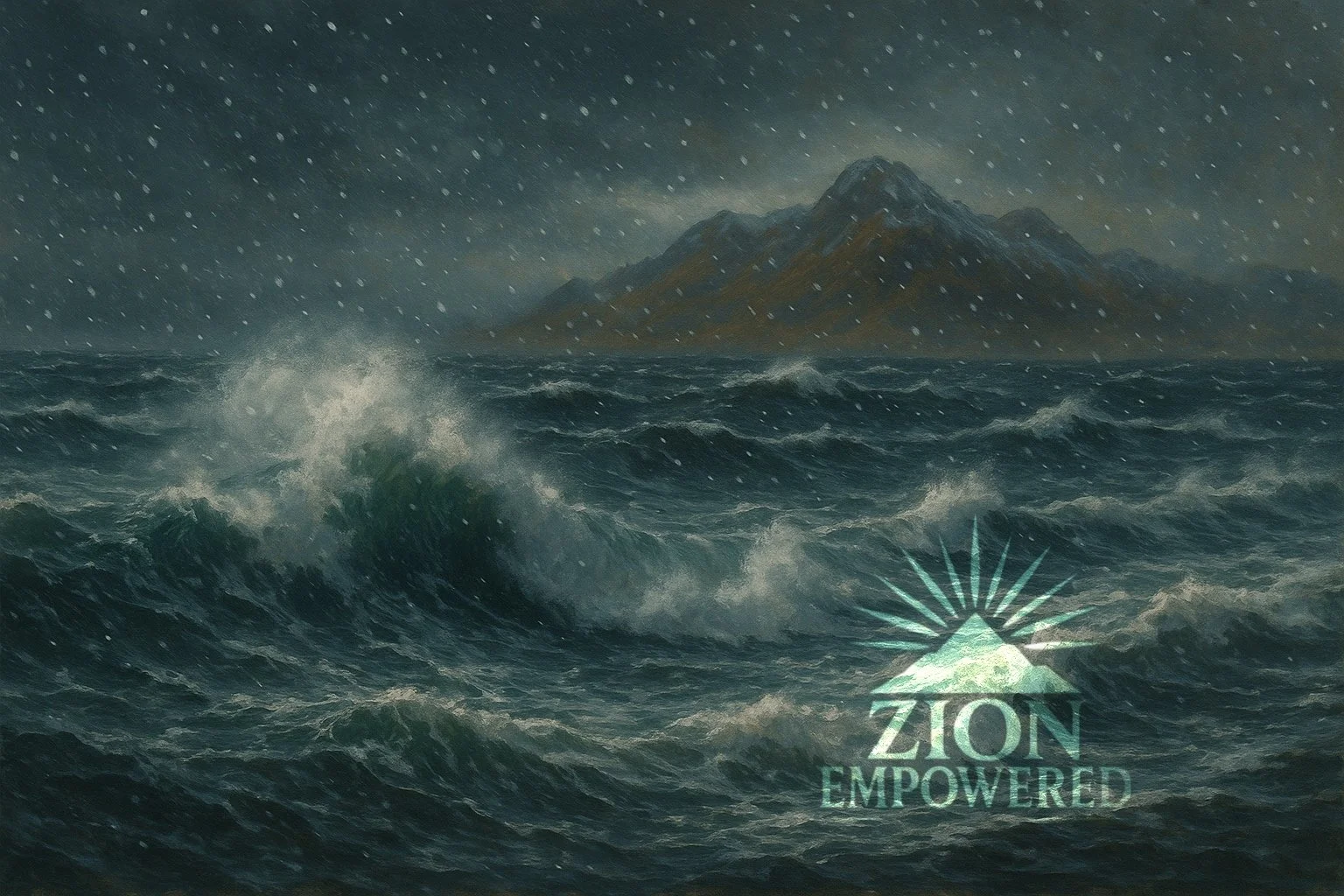
From Chaos to Character — Living in the Order of God
Preamble: The Sound Before the Snow
The first cold wind slides down the Chugach range, and the birch leaves begin their slow benediction—turning gold, then letting go. Autumn in Alaska is the earth rehearsing Genesis. Creation does not collapse; it contracts, preparing for revelation.
Before there was form, there was sound. Before there was church, there was voice. God spoke into the ungoverned deep, and meaning began to rise from motion. The sages say the Torah existed two thousand years before the world—a scroll of fire written in breath—God’s architecture of intention waiting to be spoken.
So Bereshit is not primitive cosmology; it is divine psychology. It tells us how order emerges from imagination, how structure is born from Spirit. Every creator, every leader, every believer stands again at that edge where chaos hums and the Word waits to be uttered.
And sometimes, the first creative act is withdrawal. The mystics call it tzimtzum—the holy contraction by which the Infinite makes room for the finite. Before there can be light, there must be space for it to shine. Before the ministry can expand, the self must step aside.
Paul intuited this same rhythm when he wrote:
“Live in a way that pleases God… control your own vessel in holiness and honor.” (1 Th 4:1–4)
Genesis builds the world; Thessalonians builds the soul. Both reveal one continuum— Word divides chaos, Spirit hovers, light appears, and creation becomes holy.
So as this new church season dawns, and as the world outside trembles between decay and renewal, we choose the Creator’s posture: to listen before we lead, to make space before we speak, and to let the first command echo once more through our own becoming—
“Let there be light.”
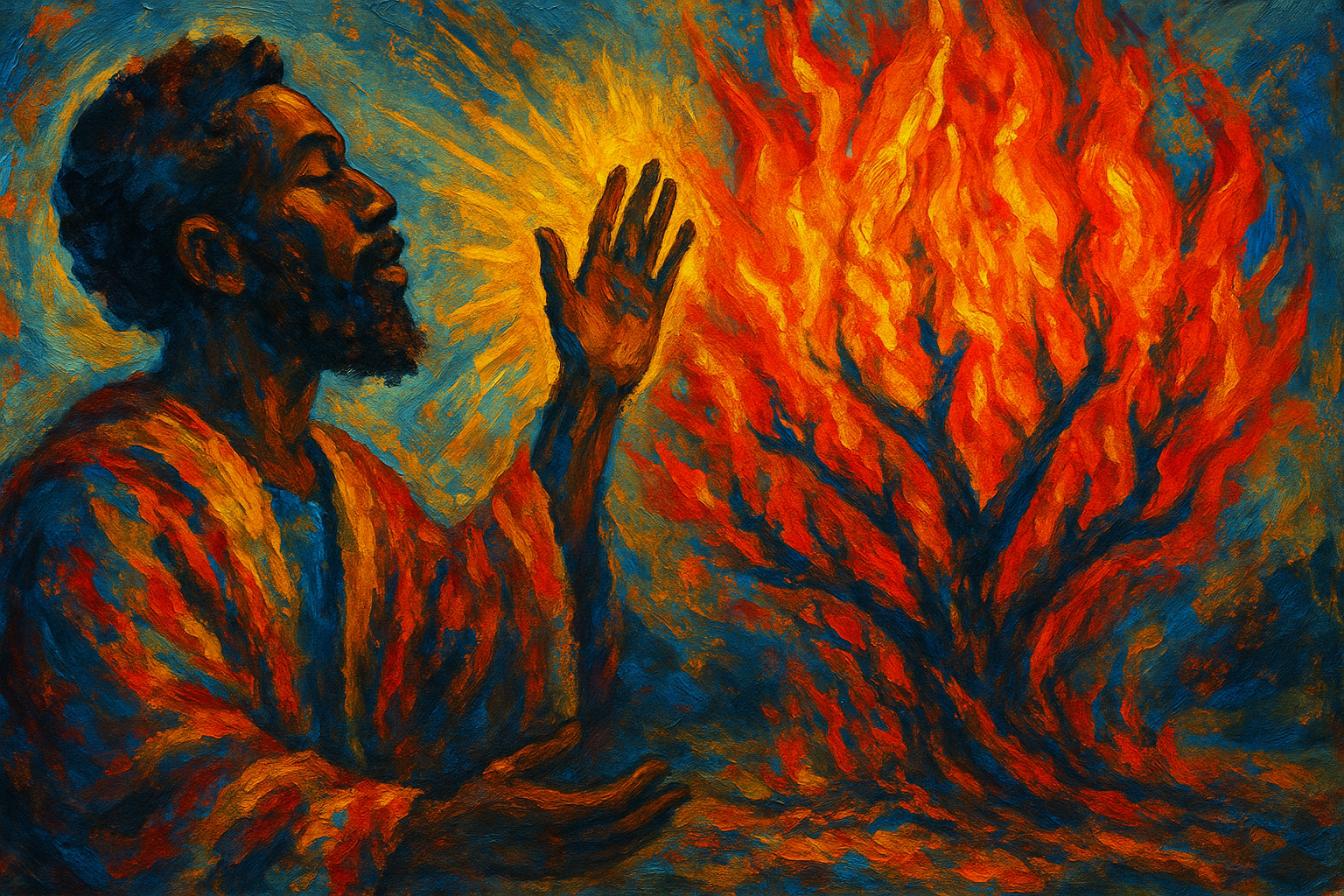
The Eagle and the Courtyard — When Memory Saves the Temple
Preamble: Fire in the Courtyard
In the days of Jeremiah it was the early reign of Jehoiakim; in our own it is another season of turmoil.
Then as now, God sent a sermon, not a sword. The prophet was told to stand in the courtyard where worship and commerce mixed, where people came to pray and to profit in the same breath, and warn them that even the temple could fall if the people mistook religion for righteousness.
We, too, live in a courtyard age—when the air trembles with headlines: wars flare in the Holy Land, governments wobble under greed and pride, leaders rage and threaten shutdowns while the sick wonder how they’ll pay to stay alive. The ground shakes not only from bombs and storms but from the moral fault lines of a world that no longer fears deceit.
Yet the same God who once hovered over the wilderness nest (Deut 32:11) still hovers over nations in crisis. His wings are spread in warning and in mercy. The question for our generation is whether we will hear the sermon before the sword.
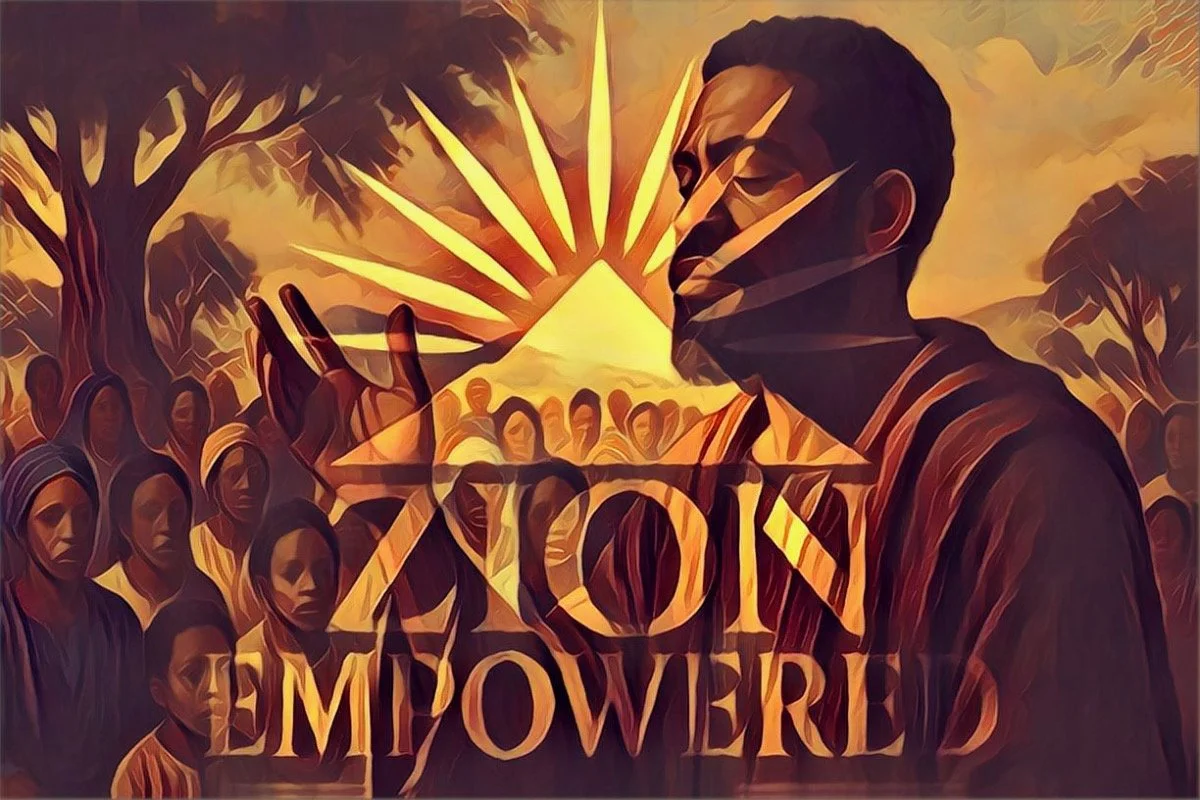
Mercy in the Assembly
Preamble
Moses told Israel that every seven years, the whole community had to stop and gather—men and women, children and even the strangers at the gate—to hear the Word of God read aloud. That gathering wasn’t just ceremony; it was covenant renewal. It was a way of saying, we belong to God together, across every generation.
Centuries later, the prophet Micah closed his book with a song that sounds like a prayer for the Day of Atonement: “Who is a God like You—who pardons iniquity, who passes over transgression, who casts our sins into the sea?” It is a song of covering, a song of mercy.
This week it hits me personally, because my own birthday often falls on Yom Kippur, the Day of Atonement. That collision of life and atonement reminds me that every year, every breath, is already grace. To be born on the day of covering is to know that we live not by our merit but by God’s mercy.
So these two texts form a mirror for us: Moses shows us the necessity of gathering to hear God’s Word, and Micah assures us that the God we hear is merciful and steadfast, casting away sins and restoring His people in love.
